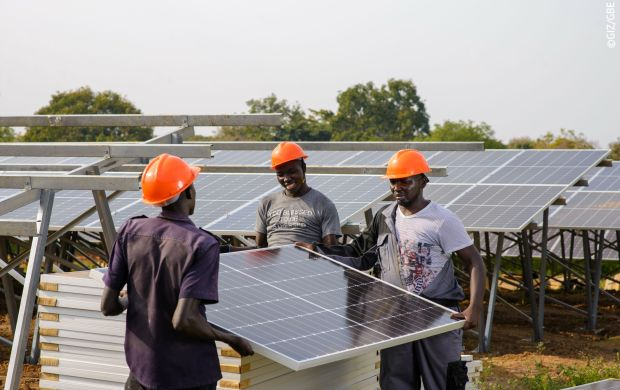By Caroline.N.
Uganda could reach a $500 billion economy by 2050 if it prioritises investments in climate-resilient infrastructure and sustainable technologies, according to a new study released this week. The report highlights the critical role of climate-conscious policies and green financing in accelerating economic growth while safeguarding the country’s natural resources.
Conducted by the East African Climate Policy Institute (EACPI), the study emphasises Uganda’s heavy reliance on agriculture, which accounts for nearly 24% of the country’s gross domestic product (GDP) and employs more than 70% of the population. The sector is highly vulnerable to climate change, with prolonged droughts, erratic rainfall, and flooding increasingly threatening crop yields and livestock production. These climate shocks have already led to significant economic losses and heightened food insecurity, particularly in rural areas.
“Uganda’s economic future is closely tied to how we manage and adapt to climate change today,” said Dr. Grace Achieng, lead researcher of the study. “Climate investment is not just an environmental necessity, it is a key economic strategy that can propel the country into a $500 billion economy over the next three decades.”
The report identifies renewable energy, climate-smart agriculture, sustainable transport, and resilient infrastructure as the cornerstone sectors for economic transformation. It estimates that an annual investment of $5–7 billion in these areas could unlock new industries, boost productivity, and create millions of jobs. Specific recommendations include expanding solar and hydroelectric energy generation, improving irrigation and water management systems, promoting sustainable forestry, and adopting farming techniques resilient to extreme weather conditions.
Experts also stress the importance of private sector participation and international climate financing. By mobilising public-private partnerships, Uganda can attract investment in green industries while reducing reliance on fossil fuels and mitigating environmental degradation. “Climate investment positions Uganda as a competitive player in regional and global markets that increasingly value sustainability,” noted Dr. Achieng.

Government officials have welcomed the findings, highlighting the need to embed climate considerations into national economic planning. “The future of Uganda’s economy is inseparable from environmental sustainability,” said Hon. Matia Kasaija, Minister of Finance, Planning and Economic Development. “This study provides a roadmap for leveraging climate investments as a driver of growth and development.”
The study further notes that Uganda’s large youth population stands to benefit from opportunities in green sectors, including renewable energy, sustainable agriculture, and environmental management. “Investing in climate-smart industries empowers a new generation of entrepreneurs and skilled workers, while protecting our environment for the long term,” Dr. Achieng added.
While acknowledging challenges such as limited financing and institutional capacity, the report concludes that coordinated efforts by governments, the private sector, and international partners could unlock vast economic potential. Climate investment, the study asserts, is not only a tool for environmental protection but also a strategic path toward building a resilient, diversified, and prosperous economy.
As Uganda plans its development path, the findings make clear that the country’s economic ambitions and environmental stewardship are inseparably linked, with green investments offering a viable route to sustainable prosperity.


